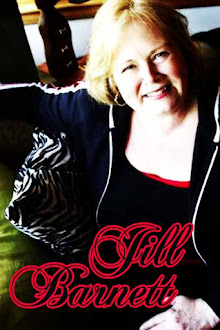November 17, 2016
Contrary to popular belief I am not a whiner...
http://juliegarwood.com/
Except for now. (I have to laugh - ha, ha - because I am a whiner.) I am still going through an enormous dry spell of books that either don't grab me right away or are very
disappointing. I have been resurrecting numerous older books, which is why I had a Garwood rush. After rereading The Secret, I decided to reread two of her connected books (can't read one without the other), The Bride and The Wedding. Much to my surprise I liked one better than the other. Why is that, you may ask. Well, I scratched my head and asked myself how can you like one better than the other when they are almost totally the same! Yes, all one would really need to do is just copy paste the names from one book to the other and save oneself some money. So, how come I enjoyed one more than the other? May have been my mood, but I don't think so. Let's give it a look, shall we?
The Bride by Julie Garwood was written in 1989. In this book we have Jamie, who is the youngest daughter of Baron Jamison, or more correctly his step-daughter. Jamie's mother was already pregnant when the Baron married her, but he couldn't love her any more if she were the child of his blood, aka DNA. Jamie is an interesting character - she has taken over the running of the household, she does all the work, she is the one with calluses on her hands while her step-sisters have none. You might think that would make her a martyr, but in this case she isn't unhappy about any of the work or responsibility. In fact, she's downright proud that she does all the thinking, working, digging, planning - keeping everything ship-shape-shape-ship. She doesn't see that she is being used by her father and sisters. She actually gets downright belligerent at anyones suggestion that she is a walked all over drudge. The problem with this kind of characterization is that to do all of that stuff, you would think a person wouldn't be quite so naive. Wrong. Jamie is one of the biggest, happiest, butterfly-on-shoulder, innocent ever. The workaholic and innocence don't go together. How can she be savvy enough to run a big household, but still be oblivious to what goes on around her. But everyone loves her. She's like an early Disney heroine - everyone loves her, she wins over the meanest ogre with just a winsome smile. But, she's not aware that she's doing it. I found her too good to be believed. Because of that when passages were written with the intention of being funny, I didn't laugh.
Then we have Alec Kincaid. Alec is a typical Garwood Scottish hero - big, big, big, alpha-caveman, me-right-you-wrong, followed by a grunt here and there. He also had an irritating habit of saying "hot" as in "you're hot for me." Wait a minute, wait a minute, isn't this the 1200s something - would guys really say "you're hot for me?" Wouldn't they say something like "milady, you make my codpiece big" or since we are in Scotland "och, ma braw lassie, ma knob is big fer ya." Actually, Ms. Garwood doesn't have Scottish brogue littered throughout her books. Anyway, I found "hot" distracting and it threw me out of the story numerous times.
For me, The Bride didn't hold up well over the years. Except for the horses, I had no sense of being in a different time period. The heroine was tiny, spunky, and close to TSTL. The hero was big, big, big, virile, big, commanding, stubborn, big. In the past I have been known to go into a rant when someone calls my beloved romance novels clichéd. However, I must confess that for me The Bride comes off being very much a formula book.
Time/Place: Medieval Scotland
Sensuality: Creepy Hot (she's oblivious, he's not)
Thursday
Subscribe to:
Post Comments (Atom)







No comments:
Post a Comment